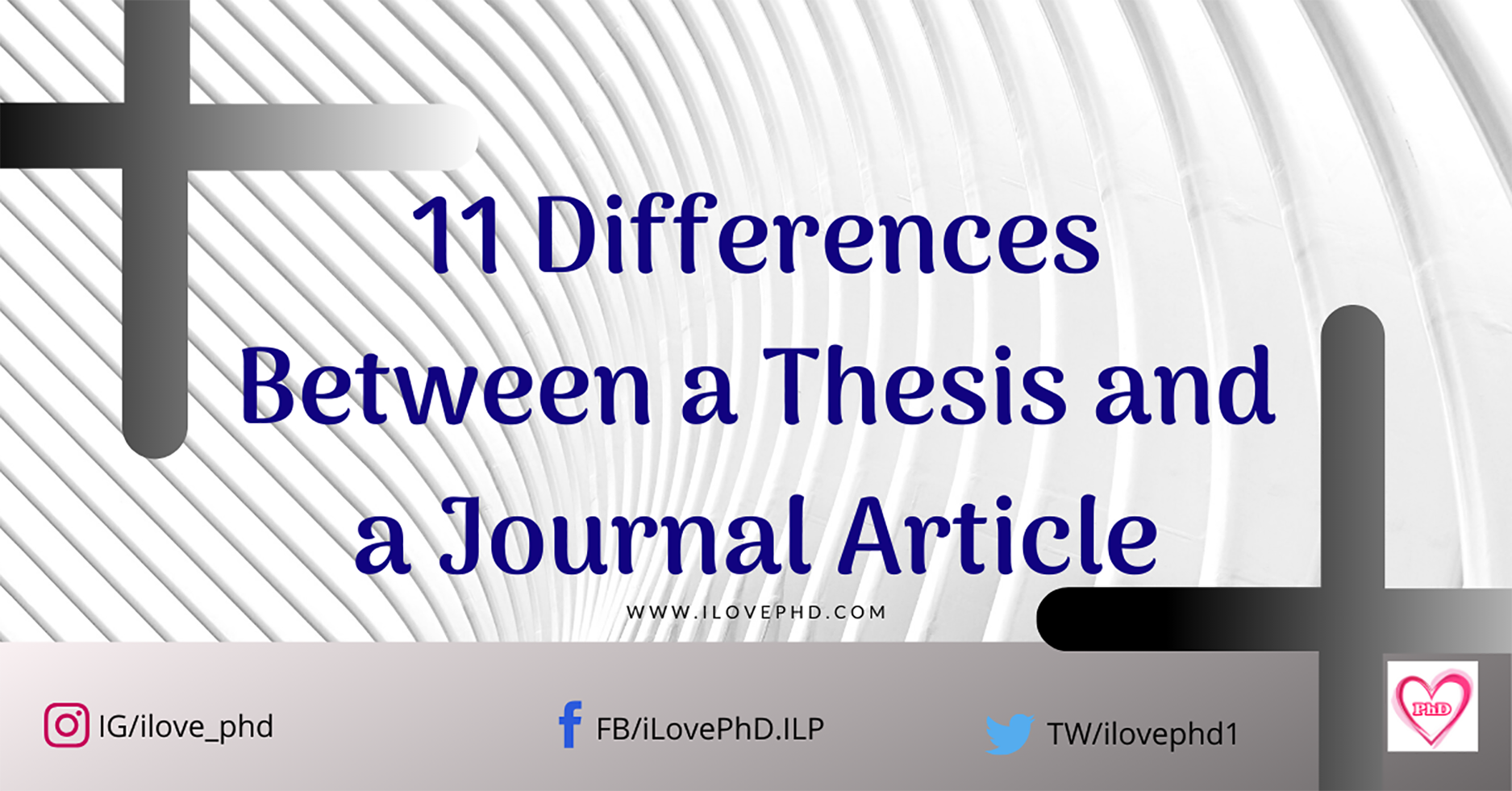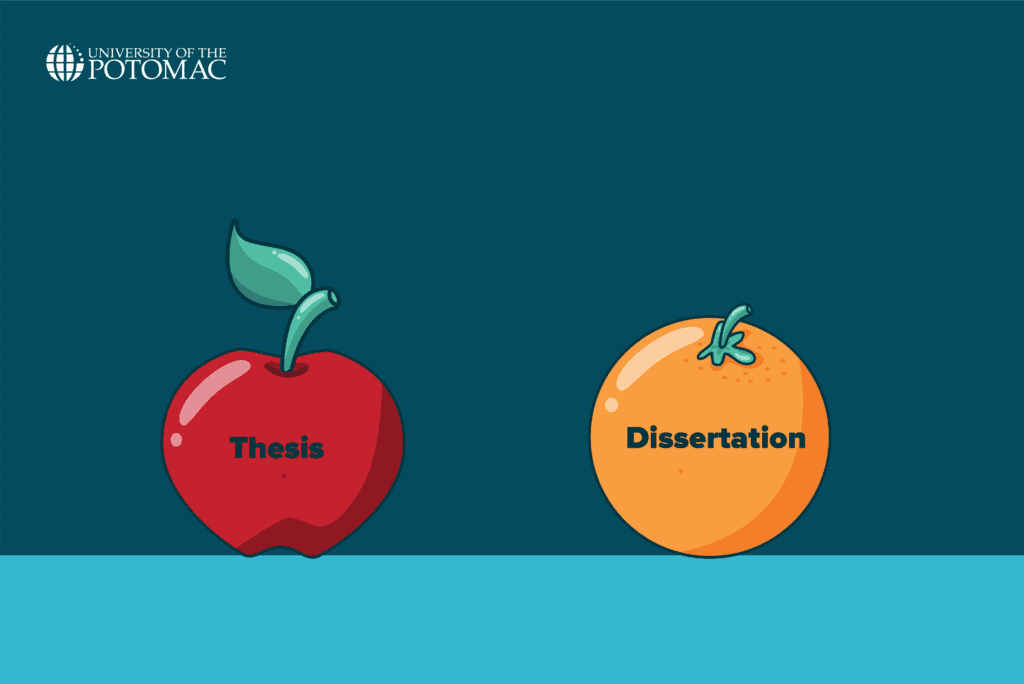- Proceedings Proposal
- Abstract Book Proposal
- Conference Issue Proposal
- Publication Newsletters & Alerts


Thesis vs Journal Article: A Comprehensive Comparison
In the world of academia, two prominent forms of scholarly writing are the Thesis and the Journal Article . While both contribute to the advancement of knowledge and showcase research skills, they have distinct characteristics and serve different purposes. Understanding the differences between a thesis and a journal article is crucial for researchers, scholars, and students. In this article, we will provide a detailed and insightful comparison of these two forms of academic writing, examining their purpose, structure, audience, and publication process.
A thesis serves as a comprehensive demonstration of a student’s ability to conduct independent research, analyze data, and contribute original insights to their field of study. Its primary purpose is to fulfill the requirements for the completion of a degree, whether it be a master’s or a doctoral program. A thesis delves deep into a specific research problem, addressing gaps in existing knowledge and making a unique contribution to the field.
On the other hand, a journal article focuses on the dissemination of research findings to the wider academic community. Its purpose is to contribute to the existing body of knowledge, engage in scholarly discourse, and facilitate further research. Journal articles are typically more specific in scope, targeting a particular research question or hypothesis, and highlighting the significance of the findings within the context of the field.
Thesis and journal articles follow different structures to fulfill their respective purposes.
A thesis typically consists of several chapters, including an introduction, literature review, methodology, results, discussion, and conclusion. These chapters are interconnected, forming a cohesive narrative that showcases the student’s research journey. Additionally, a thesis may include supplementary sections such as an abstract, acknowledgments, and appendices. The structure of a thesis allows for an extensive exploration of the research problem, thorough analysis of the findings, and comprehensive discussion of their implications.
In contrast, a journal article adheres to a more concise and standardized structure. It typically includes an abstract, introduction, methodology, results, discussion, and conclusion. Journal articles are focused and aim to present the research in a clear and concise manner within the limited word count set by the target journal. The structure of a journal article emphasizes brevity, with a specific focus on the key findings and their implications.
Audience and Publication
Theses and journal articles differ in their target audience and publication process.
Theses are primarily intended for academic evaluation and examination. They are typically assessed by a committee of professors or experts in the field. Theses contribute to the existing body of knowledge within a specific discipline, but they are not usually published in academic journals. While some theses may be made available through institutional repositories, their primary audience is the academic community within the student’s institution.
Journal articles, on the other hand, target a broader audience of researchers, scholars, and practitioners in the field. They undergo a rigorous peer-review process, where experts in the field assess the quality, validity, and contribution of the research. Successful publication in a reputable journal allows researchers to share their findings with the wider academic community, receive feedback, and contribute to ongoing scholarly discussions.
Length and Depth
Another significant difference between theses and journal articles lies in their length and depth.
Theses are typically longer and more extensive in terms of content. They require students to conduct comprehensive research, provide detailed literature reviews, and present thorough analyses. The length of a thesis can vary depending on the field and degree level, ranging from tens to hundreds of pages. This length allows for an in-depth exploration of the research problem and the incorporation of relevant theoretical frameworks and methodologies.
Journal articles, on the other hand, are generally shorter and more concise. They aim to present the research findings within the constraints of the target journal’s word count limitations. Journal articles can range from a few thousand words to around 8,000 words, depending on the journal’s requirements. The brevity of journal articles necessitates clear and focused writing, emphasizing the key findings, their interpretation, and their implications for the field. While the depth of analysis may be more limited compared to a thesis, journal articles are expected to provide sufficient information for other researchers to understand and build upon the presented research.
Citation and Referencing
Both theses and journal articles require accurate and comprehensive referencing to acknowledge the contributions of other researchers and provide credibility to the work.
In the case of theses, referencing is typically more extensive, as they involve comprehensive literature reviews and incorporate a broader range of sources. Theses follow specific citation styles, such as APA, MLA, or Chicago, as per the guidelines provided by the institution or department.
Journal articles also adhere to specific citation styles determined by the target journal. However, the referencing in journal articles tends to be more focused on the specific literature and studies directly relevant to the research question at hand. The emphasis is on providing adequate support for the key arguments and findings presented in the article.
The thesis and the journal article are distinct forms of academic writing, each with its own purpose, structure, audience, and publication process.
Theses demonstrate a student’s research capabilities and contribute original insights to their field of study. They are comprehensive in scope, consisting of several chapters that explore the research problem in depth. Theses are primarily evaluated by academic committees and are not typically published in academic journals.
Journal articles, on the other hand, aim to disseminate research findings to the wider academic community. They focus on specific research questions and contribute to existing knowledge. Journal articles follow a concise and standardized structure, adhering to the guidelines of the target journal. They undergo rigorous peer review and are published in reputable journals to reach a broader audience.
Understanding the distinctions between theses and journal articles enables researchers, scholars, and students to approach each form of writing with the appropriate structure, depth, and style required for their intended purpose and audience. Both theses and journal articles play vital roles in advancing knowledge and fostering academic discourse within their respective fields.

Call for Book Chapter on Breast Cancer

Publish Proceedings

In-text Citation: Referencing Guide

APA Referencing Style: A Quick Guide

IEEE Referencing Style: A Quick Guide
- Publish with AIJR
- Journal Word Template
- Paper Publishing Process
- Editorial Screening Process
- Ethics for Authors
- Guest Posting Blog
- Submit Proceedings Proposal
- Submit Abstract Book Proposal
- Submit Conference Issue Proposal
- Proceedings vs Book of Abstracts
- Proceedings vs Special Issue
Privacy Overview

- Interesting
- Scholarships
- UGC-CARE Journals
11 Differences Between a Thesis and an Article

Table of contents
Differences between a thesis and an article, what is the difference between thesis and dissertation, what is the difference between sci, scie and esci journals, how to become an academic journal reviewer|step by step guide.
Journal article and thesis are two important formats of reports in academia. There are certain differences between the thesis and article. The aim of the thesis is totally different from a journal article. Being a researcher , understanding the differences between both kind of academic writing is very essential.
Courtesy: Elsevier.com
Hope, this article helps you to distinguish the difference between a thesis and an article.
- Difference between
- Peer Reviewed Journals
What is a Research Design? Importance and Types
Z-library is legal you can download 70,000,000+ scientific articles for free, top scopus indexed journals in aviation and aerospace engineering.
Really it is very very important for a Researcher. Without knowledge of writing an article and thesis research is a dilemma .It is fruitless. Many Many Thanks for your Support in this regard.
[…] 11 Differences Between a Thesis and an Article […]
[…] Also Read: 11 Differences Between a Thesis and an Article | iLovePhD […]
LEAVE A REPLY Cancel reply
Notify me of follow-up comments by email.
Notify me of new posts by email.
Email Subscription

iLovePhD is a research education website to know updated research-related information. It helps researchers to find top journals for publishing research articles and get an easy manual for research tools. The main aim of this website is to help Ph.D. scholars who are working in various domains to get more valuable ideas to carry out their research. Learn the current groundbreaking research activities around the world, love the process of getting a Ph.D.
WhatsApp Channel
Join iLovePhD WhatsApp Channel Now!
Contact us: [email protected]
Copyright © 2019-2024 - iLovePhD
- Artificial intelligence

- Publication Process
How to Write a Journal Article from a Thesis
- 3 minute read
- 203.2K views
Table of Contents
You are almost done with your PhD thesis and want to convert it into a journal article. Or, you’re initiating a career as a journal writer and intend to use your thesis as a starting point for an article. Whatever your situation, turning a thesis into a journal article is a logical step and a process that eventually every researcher completes. But…how to start?
The first thing to know about converting a thesis into a journal article is how different they are:
Thesis Characteristics:
- Meets academic requirements
- Reviewed by select committee members
- Contains chapters
- Lengthy, no word limits
- Table of contents
- Lengthy research of literature
- IRB approval described in detail
- Description and copies of tools used
- All findings presented
- Verb tenses may vary
Journal Article Characteristics:
- Meets journalistic standards
- Reviewed by a panel of “blind” reviewers
- Word limits
- Manuscript format
- Succinct research of literature
- IRB described in 1 to 3 sentences
- Essential and succinct tool information
- Selected findings presented
- Verb tenses are fairly consistent
Converting your thesis to a journal article may be complex, but it’s not impossible.
A thesis is a document of academic nature, so it’s more detailed in content. A journal article, however, is shorter, highlighting key points in a more succinct format. Adapting a thesis for conversion into a journal article is a time-consuming and intricate process that can take you away from other important work. In that case, Elsevier’s Language Editing services may help you focus on important matters and provide a high-quality text for submission in no time at all.
If you are going to convert a thesis into a journal article, with or without professional help, here is a list of some of the steps you will likely have to go through:
1. Identify the best journal for your work
- Ensure that your article is within the journal’s aim and scope. How to find the right journal? Find out more .
- Check the journal’s recommended structure and reference style
2. Shorten the length of your thesis
- Treat your thesis as a separate work
- Paraphrase but do not distort meaning
- Select and repurpose parts of your thesis
3. Reformat the introduction as an abstract
- Shorten the introduction to 100-150 words, but maintain key topics to hold the reader’s attention.
- Use the introduction and discussion as basis for the abstract
4. Modify the introduction
- If your thesis has more than one research question or hypothesis, which are not all relevant for your paper, consider combining your research questions or focusing on just one for the article
- Use previously published papers (at least three) from the target journal as examples
5. Tighten the methods section
- Keep the discussion about your research approach short
6. Report main findings in the results
- Expose your main findings in the results section in concise statements
7. Discussion must be clear and concise
- Begin by providing an interpretation of your results: “What is it that we have learned from your research?”
- Situate the findings to the literature
- Discuss how your findings expand known or previous perspectives
- Briefly present ways in which future studies can build upon your work and address limitations in your study
8. Limit the number of references
- To choose the most relevant and recent
- To format them correctly
- Consider using a reference manager system (e.g. Mendeley ) to make your life easier
If you are not a proficient English speaker, the task of converting a thesis into a journal article might make it even more difficult. At Elsevier’s Language Editing services we ensure that your manuscript is written in correct scientific English before submission. Our professional proofers and editors check your manuscript in detail, taking your text as our own and with the guarantee of maximum text quality.
Language editing services by Elsevier Author Services:

- Research Process
How to Choose a Journal to Submit an Article

- Publication Recognition
How to Submit a Paper for Publication in a Journal
You may also like.

Publishing Biomedical Research: What Rules Should You Follow?

Writing an Effective Cover Letter for Manuscript Resubmission

Journal Acceptance Rates: Everything You Need to Know

Research Data Storage and Retention

How to Find and Select Reviewers for Journal Articles

How to Request the Addition of an Extra Author Before Publication

Paper Rejection: Common Reasons
Input your search keywords and press Enter.

Journal Article vs Thesis
Which research article can be considered as journal articles? A journal article can be scientific or social science article. These are often called scientific articles, peer-reviewed articles or scholarly articles. They can be categorized as primary literature or as review articles. At times, an article could define an advanced or new tool, technique or methodology. What is a thesis? A thesis is usually a long dissertation written by a candidate for a university degree. The key difference between a journal article and a thesis is that the former is based on specific topics, whereas the latter includes a deep study under expert supervision. A thesis is usually written after a student completes his or her research in a particular field of interest under programs like doctorate, post-graduation, graduation, etc. A thesis is affiliated to any recognized university or a doctoral fellow. Its chapters or sections can be published as individual research papers in reputed journals. Hence, a thesis is considered to be an approved document and its range may vary according to the type of research done. It is generally a proposed form of writing. On the other hand, journal articles are publications including original research papers, scholarly articles, reviews, case studies, etc. A research paper may include a variety of topics, contrary to a thesis which is written on a single topic. Further, a research paper can be completed within few days, depending on the content of the research. In contrast, a thesis takes a much longer time to complete. Journal articles are usually up-to-date researches in a particular field or subject. They can even be short papers presenting innovative ideas. However, a thesis discusses current as well as future research options and presents the research in a more detailed manner, each component divided into one or more chapters.
Related Posts
Invasive asian honeybees surprisingly thrive despite genetic challenges.
In a surprising turn of events, invasive Asian honeybees in North Queensland have thrived and expanded their population over a decade, defying genetic expectations. Despite starting with low genetic diversity, the species Apis cerana has grown from a single swarm into more than 10,000 colonies across a vast area. The study, published in Current Biology, […]
New Method Offers Deeper Look at Gene Regulation in Cells
Scientists have unveiled RENGE, a powerful tool for untangling the complex web of gene interactions within cells. RENGE analyzes time-series data after CRISPR gene editing, providing a more complete picture than traditional methods. This allows it to distinguish direct from indirect gene regulation, even revealing how unedited genes influence the network. RENGE captures the cascading […]
Inappropriate Reforestation: Threats to Vast Tropical Grasslands in Africa
A recent University of Liverpool-led study sheds light on the perils of misguided reforestation efforts in Africa. Inappropriately executed projects, like the AFR100 initiative, pose a significant threat to an area equivalent to the size of France. The study underlines the crucial need for sustainable and context-specific restoration practices, urging a reevaluation of current initiatives. […]
Leave a Reply Cancel reply
Your email address will not be published. Required fields are marked *
Save my name, email, and website in this browser for the next time I comment.
Have a language expert improve your writing
Run a free plagiarism check in 10 minutes, generate accurate citations for free.
- Knowledge Base
- Dissertation
- What Is a Thesis? | Ultimate Guide & Examples
What Is a Thesis? | Ultimate Guide & Examples
Published on September 14, 2022 by Tegan George . Revised on November 21, 2023.
A thesis is a type of research paper based on your original research. It is usually submitted as the final step of a master’s program or a capstone to a bachelor’s degree.
Writing a thesis can be a daunting experience. Other than a dissertation , it is one of the longest pieces of writing students typically complete. It relies on your ability to conduct research from start to finish: choosing a relevant topic , crafting a proposal , designing your research , collecting data , developing a robust analysis, drawing strong conclusions , and writing concisely .
Thesis template
You can also download our full thesis template in the format of your choice below. Our template includes a ready-made table of contents , as well as guidance for what each chapter should include. It’s easy to make it your own, and can help you get started.
Download Word template Download Google Docs template
Instantly correct all language mistakes in your text
Upload your document to correct all your mistakes in minutes

Table of contents
Thesis vs. thesis statement, how to structure a thesis, acknowledgements or preface, list of figures and tables, list of abbreviations, introduction, literature review, methodology, reference list, proofreading and editing, defending your thesis, other interesting articles, frequently asked questions about theses.
You may have heard the word thesis as a standalone term or as a component of academic writing called a thesis statement . Keep in mind that these are two very different things.
- A thesis statement is a very common component of an essay, particularly in the humanities. It usually comprises 1 or 2 sentences in the introduction of your essay , and should clearly and concisely summarize the central points of your academic essay .
- A thesis is a long-form piece of academic writing, often taking more than a full semester to complete. It is generally a degree requirement for Master’s programs, and is also sometimes required to complete a bachelor’s degree in liberal arts colleges.
- In the US, a dissertation is generally written as a final step toward obtaining a PhD.
- In other countries (particularly the UK), a dissertation is generally written at the bachelor’s or master’s level.
The only proofreading tool specialized in correcting academic writing - try for free!
The academic proofreading tool has been trained on 1000s of academic texts and by native English editors. Making it the most accurate and reliable proofreading tool for students.

Try for free
The final structure of your thesis depends on a variety of components, such as:
- Your discipline
- Your theoretical approach
Humanities theses are often structured more like a longer-form essay . Just like in an essay, you build an argument to support a central thesis.
In both hard and social sciences, theses typically include an introduction , literature review , methodology section , results section , discussion section , and conclusion section . These are each presented in their own dedicated section or chapter. In some cases, you might want to add an appendix .
Thesis examples
We’ve compiled a short list of thesis examples to help you get started.
- Example thesis #1: “Abolition, Africans, and Abstraction: the Influence of the ‘Noble Savage’ on British and French Antislavery Thought, 1787-1807” by Suchait Kahlon.
- Example thesis #2: “’A Starving Man Helping Another Starving Man’: UNRRA, India, and the Genesis of Global Relief, 1943-1947″ by Julian Saint Reiman.
The very first page of your thesis contains all necessary identifying information, including:
- Your full title
- Your full name
- Your department
- Your institution and degree program
- Your submission date.
Sometimes the title page also includes your student ID, the name of your supervisor, or the university’s logo. Check out your university’s guidelines if you’re not sure.
Read more about title pages
The acknowledgements section is usually optional. Its main point is to allow you to thank everyone who helped you in your thesis journey, such as supervisors, friends, or family. You can also choose to write a preface , but it’s typically one or the other, not both.
Read more about acknowledgements Read more about prefaces
Receive feedback on language, structure, and formatting
Professional editors proofread and edit your paper by focusing on:
- Academic style
- Vague sentences
- Style consistency
See an example

An abstract is a short summary of your thesis. Usually a maximum of 300 words long, it’s should include brief descriptions of your research objectives , methods, results, and conclusions. Though it may seem short, it introduces your work to your audience, serving as a first impression of your thesis.
Read more about abstracts
A table of contents lists all of your sections, plus their corresponding page numbers and subheadings if you have them. This helps your reader seamlessly navigate your document.
Your table of contents should include all the major parts of your thesis. In particular, don’t forget the the appendices. If you used heading styles, it’s easy to generate an automatic table Microsoft Word.
Read more about tables of contents
While not mandatory, if you used a lot of tables and/or figures, it’s nice to include a list of them to help guide your reader. It’s also easy to generate one of these in Word: just use the “Insert Caption” feature.
Read more about lists of figures and tables
If you have used a lot of industry- or field-specific abbreviations in your thesis, you should include them in an alphabetized list of abbreviations . This way, your readers can easily look up any meanings they aren’t familiar with.
Read more about lists of abbreviations
Relatedly, if you find yourself using a lot of very specialized or field-specific terms that may not be familiar to your reader, consider including a glossary . Alphabetize the terms you want to include with a brief definition.
Read more about glossaries
An introduction sets up the topic, purpose, and relevance of your thesis, as well as expectations for your reader. This should:
- Ground your research topic , sharing any background information your reader may need
- Define the scope of your work
- Introduce any existing research on your topic, situating your work within a broader problem or debate
- State your research question(s)
- Outline (briefly) how the remainder of your work will proceed
In other words, your introduction should clearly and concisely show your reader the “what, why, and how” of your research.
Read more about introductions
A literature review helps you gain a robust understanding of any extant academic work on your topic, encompassing:
- Selecting relevant sources
- Determining the credibility of your sources
- Critically evaluating each of your sources
- Drawing connections between sources, including any themes, patterns, conflicts, or gaps
A literature review is not merely a summary of existing work. Rather, your literature review should ultimately lead to a clear justification for your own research, perhaps via:
- Addressing a gap in the literature
- Building on existing knowledge to draw new conclusions
- Exploring a new theoretical or methodological approach
- Introducing a new solution to an unresolved problem
- Definitively advocating for one side of a theoretical debate
Read more about literature reviews
Theoretical framework
Your literature review can often form the basis for your theoretical framework, but these are not the same thing. A theoretical framework defines and analyzes the concepts and theories that your research hinges on.
Read more about theoretical frameworks
Your methodology chapter shows your reader how you conducted your research. It should be written clearly and methodically, easily allowing your reader to critically assess the credibility of your argument. Furthermore, your methods section should convince your reader that your method was the best way to answer your research question.
A methodology section should generally include:
- Your overall approach ( quantitative vs. qualitative )
- Your research methods (e.g., a longitudinal study )
- Your data collection methods (e.g., interviews or a controlled experiment
- Any tools or materials you used (e.g., computer software)
- The data analysis methods you chose (e.g., statistical analysis , discourse analysis )
- A strong, but not defensive justification of your methods
Read more about methodology sections
Your results section should highlight what your methodology discovered. These two sections work in tandem, but shouldn’t repeat each other. While your results section can include hypotheses or themes, don’t include any speculation or new arguments here.
Your results section should:
- State each (relevant) result with any (relevant) descriptive statistics (e.g., mean , standard deviation ) and inferential statistics (e.g., test statistics , p values )
- Explain how each result relates to the research question
- Determine whether the hypothesis was supported
Additional data (like raw numbers or interview transcripts ) can be included as an appendix . You can include tables and figures, but only if they help the reader better understand your results.
Read more about results sections
Your discussion section is where you can interpret your results in detail. Did they meet your expectations? How well do they fit within the framework that you built? You can refer back to any relevant source material to situate your results within your field, but leave most of that analysis in your literature review.
For any unexpected results, offer explanations or alternative interpretations of your data.
Read more about discussion sections
Your thesis conclusion should concisely answer your main research question. It should leave your reader with an ultra-clear understanding of your central argument, and emphasize what your research specifically has contributed to your field.
Why does your research matter? What recommendations for future research do you have? Lastly, wrap up your work with any concluding remarks.
Read more about conclusions
In order to avoid plagiarism , don’t forget to include a full reference list at the end of your thesis, citing the sources that you used. Choose one citation style and follow it consistently throughout your thesis, taking note of the formatting requirements of each style.
Which style you choose is often set by your department or your field, but common styles include MLA , Chicago , and APA.
Create APA citations Create MLA citations
In order to stay clear and concise, your thesis should include the most essential information needed to answer your research question. However, chances are you have many contributing documents, like interview transcripts or survey questions . These can be added as appendices , to save space in the main body.
Read more about appendices
Once you’re done writing, the next part of your editing process begins. Leave plenty of time for proofreading and editing prior to submission. Nothing looks worse than grammar mistakes or sloppy spelling errors!
Consider using a professional thesis editing service or grammar checker to make sure your final project is perfect.
Once you’ve submitted your final product, it’s common practice to have a thesis defense, an oral component of your finished work. This is scheduled by your advisor or committee, and usually entails a presentation and Q&A session.
After your defense , your committee will meet to determine if you deserve any departmental honors or accolades. However, keep in mind that defenses are usually just a formality. If there are any serious issues with your work, these should be resolved with your advisor way before a defense.
If you want to know more about AI for academic writing, AI tools, or research bias, make sure to check out some of our other articles with explanations and examples or go directly to our tools!
Research bias
- Survivorship bias
- Self-serving bias
- Availability heuristic
- Halo effect
- Hindsight bias
- Deep learning
- Generative AI
- Machine learning
- Reinforcement learning
- Supervised vs. unsupervised learning
(AI) Tools
- Grammar Checker
- Paraphrasing Tool
- Text Summarizer
- AI Detector
- Plagiarism Checker
- Citation Generator
The conclusion of your thesis or dissertation shouldn’t take up more than 5–7% of your overall word count.
If you only used a few abbreviations in your thesis or dissertation , you don’t necessarily need to include a list of abbreviations .
If your abbreviations are numerous, or if you think they won’t be known to your audience, it’s never a bad idea to add one. They can also improve readability, minimizing confusion about abbreviations unfamiliar to your reader.
When you mention different chapters within your text, it’s considered best to use Roman numerals for most citation styles. However, the most important thing here is to remain consistent whenever using numbers in your dissertation .
A thesis or dissertation outline is one of the most critical first steps in your writing process. It helps you to lay out and organize your ideas and can provide you with a roadmap for deciding what kind of research you’d like to undertake.
Generally, an outline contains information on the different sections included in your thesis or dissertation , such as:
- Your anticipated title
- Your abstract
- Your chapters (sometimes subdivided into further topics like literature review , research methods , avenues for future research, etc.)
A thesis is typically written by students finishing up a bachelor’s or Master’s degree. Some educational institutions, particularly in the liberal arts, have mandatory theses, but they are often not mandatory to graduate from bachelor’s degrees. It is more common for a thesis to be a graduation requirement from a Master’s degree.
Even if not mandatory, you may want to consider writing a thesis if you:
- Plan to attend graduate school soon
- Have a particular topic you’d like to study more in-depth
- Are considering a career in research
- Would like a capstone experience to tie up your academic experience
Cite this Scribbr article
If you want to cite this source, you can copy and paste the citation or click the “Cite this Scribbr article” button to automatically add the citation to our free Citation Generator.
George, T. (2023, November 21). What Is a Thesis? | Ultimate Guide & Examples. Scribbr. Retrieved April 9, 2024, from https://www.scribbr.com/dissertation/thesis/
Is this article helpful?
Tegan George
Other students also liked, dissertation & thesis outline | example & free templates, writing strong research questions | criteria & examples, 10 research question examples to guide your research project, what is your plagiarism score.
Difference between Thesis and Articles
Thesis and Journal Article are both important parts of reports in academic field. Some researchers find it the same but it has many differences so it is necessary to know what is thesis and what is article.
A thesis is a theory or statement needs to be proved while an article is a piece of writing that can be found in the newspaper, magazine, or other publication.
In terms of word length, there is no particular word limit in thesis writing which is approximately 25,000 words, while in article writing there is a word limit based on the journal approximately 5000 words. Also, thesis abstract is longer than a journal paper and article abstract is smaller in length. In addition, thesis literature is much longer than article literature.
A thesis is an academic requirement while an article meets journal standards. Thesis has a table of contents while an article follows a manuscript format.
Thesis also needs to discussed detailed research methodology carried but an article discussed specific methodology as well as experiments conducted.
Others differences includes the way it is written, a thesis needs a detailed introduction while an article needs a concise introduction. All findings presented as in the thesis but an article only selected finding.

ARDA Conference
ARDA helps students and research scholars in attending conferences and journal publication
Home » Article Writing Services » Difference Between Thesis and Research Article
Difference Between Thesis and Research Article

Thesis writing
The word dissertation is derived from the Latin word dissertation, which means “path”. In some countries, dissertations are also referred to as a thesis. According to the Oxford Dictionary, dissertations can also be defined as long essays on a particular subject or topic written especially for a college degree. Thesis writing can vary in scope, length, and nature, but the main aim and objective remain the same.
Research Article
A Research Article , on the other hand, could be defined as any original and non-plagiarism research. The term ‘research’ refers to the repetition of the search (examination). Repetitive research in various directions to prove the central question of the thesis is generally called ‘research’. A research article will usually, if not always, include the central question of the thesis. There are generally two types of research papers, one being qualitative and the other quantitative.
Differences Between Thesis & Research Article – In Truest Academic Sense
- A thesis is all about a single scholarly statement, and sometimes maybe it’s a summary. The existence of a thesis opens up avenues of inquiry into an infinity of speculative possibilities such as antitheses.
- While the thesis question opens up the limits of these varying possibilities, the primary focus of inquiry persists, remaining unchanged .
- A research article consists of both speculative variables (the majority of which are nullified) and constants that aim to prove the central question of the thesis or the major objective of the research.
- In its purest form, the question that a thesis hopes to answer has a sort of legality in which the outcome warrants the means potentially. Article writing involves explaining the central thesis and constitutes a process of methodological demonstration of this assertion.
Quantitative and qualitative disciplines implement this methodology in various ways depending on the provisions of that particular field. ARDA conference portal helps in writing research articles and thesis writing.
Primary Differences Between Thesis & Research Paper
There are numerous contrasts between a thesis and a research article. Some of these are major differences, while others are more nuanced or subtle. The differences described here come from classical European Enlightenment thought. There are many relevant and alternative defining paradigms and therefore, differences. While only the classicist strain will be explained here, other modes of definitions, differences and similarities will also be presented.
Primary Focus
A thesis is concerned with the central question or statement of a scientific hypothesis that results in further investigation, while a research paper is concerned with proving that central argument.
- The thesis concerns both the possibilities through the formation of numerous antitheses and the end of all the possibilities by the cancellation of all these antitheses.
- The research paper is all about proving the central statement of the thesis and accumulating proof and data to validate the same, investigating other possibilities and invalidating them and presenting speculation on prospective options for the question, which is the central part of the thesis.
- To be accurate, the research paper is all about explaining and proving the thesis.
Length Of The Argument
- The thesis is usually formed by the in-depth original reflection that puts forward a proposition or statement, but the research paper requires a tenacious resilience on the part of the researcher to prove the primary inquisition.
- The latter is a lengthy, drawn-out process in which there is the gathering of evidence, the lifting and cancellation of various other possibilities and the application of theories and evidence to the central question of research. All of this is done to prove the thesis.
- The research paper could be called an elaboration and augmentation of the primary thesis.
Problem Statement
- The term ‘thesis’ is often used in place of the term ‘research article’. This is, however, a rhetorical discrepancy in which a part is substituted for a whole.
- A thesis statement is generally part of the research paper and not the other way around.
- A thesis statement does not include the methodology. A research article illustrates this methodology and offers insight into whether it is of the quantitative or qualitative sort.
- A thesis statement is an end in itself. A research article, meanwhile, although intended to expose and explain the thesis, clearly opens up all the avenues of research that the online thesis statement holds in potentia.
- If the vast majority of these lines are canceled and proven to be “incorrect”, there are few possibilities that still refuse to go away.
- These could, in the future, go into the formation of alternative discursive structures in which the central question of the thesis is no longer valid.
- The research article seen in its “flow”, is also the end of the central thesis statement. Nevertheless, it is generally rich in theoretical and empirical information and detail.
- The thesis statement addresses a single question, while the research article raises several questions, albeit related to the central theme. Some of these questions are canceled and others remain the indicators of alternative discourse.
A research article usually consists of the thesis, but this is not always the case. The research article may be on the part of the thesis question and may have stand-alone validity. Are you confused about your research article writing and journals ? Inquiry or Comment us below we help in article writing services .
3 Replies to “Difference Between Thesis and Research Article”
I’m looking to have my dissertation published in a journal, however, I need help with writing a research article and wish to know if you can help.
Thanks for your inquiry. Our concerned coordinator will contact you shortly. Do check your spam folder if it doesn’t arrive in your inbox.
Fruitful information

Leave a Reply Cancel reply
Your email address will not be published. Required fields are marked *
Enjoy this blog? Please spread the word :)
WhatsApp us

- February 8, 2024
- Academic Advice , Education Advice
Dissertation vs Thesis: Understanding the Key Differences
UOTP Marketing

Embarking on an academic journey often involves deciphering the complexities of advanced research projects like dissertations and theses. While these terms might seem interchangeable, they possess distinctive changes in the world of higher education. A fundamental distinction between a thesis and a dissertation lies in their approach to research. A thesis typically involves synthesizing existing research and knowledge in your field, while a dissertation requires conducting original research, addressing research gaps, and making a substantive contribution to the academic domain.
As you continue your higher education journey in academia, it’s critical to decipher the fundamental differences between dissertation and thesis that set them apart.
What Is a Thesis?
A thesis is a long-term academic research paper that presents an in-depth review of existing research on a specific subject. It requires extensive research, data collection, analysis, and critical interpretation of the findings. Although some undergraduate programs may mandate a thesis, it is more commonly expected in postgraduate studies, such as upon completing a master’s degree .
What Is a Dissertation?
A dissertation is a longer and more comprehensive research project based on original research. It’s a substantial piece of academic writing required for the completion of a doctoral degree . The dissertation is the culmination of years of research, study, and expertise, contributing valuable insights in a particular field of study.

Dissertation vs Thesis: Key Differences
Both theses and dissertations serve as culminating projects for program graduation, demanding a profound grasp of the research subject and analytical skills to substantiate findings. Despite these commonalities, significant differences set them apart. The key differences include:
Academic and Research Requirements
The academic requirements for a doctoral dissertation are clearly defined hypotheses, a detailed methodology section, rigorous data analysis, and a critical discussion of the results in the context of existing literature.
In contrast, the requirements for a master’s thesis include a thorough literature review, methodology, data analysis, and a conclusion that summarizes the findings.
Research requirements are also more extensive for dissertations compared to theses, as they include conducting original experiments and studies.
Length and Complexity
The length of a dissertation or a thesis varies according to the topic and the method of analysis, or it can vary based on the departmental requirements. Usually, a master’s thesis is around 40-80 pages, sometimes up to 100 pages. A dissertation, however, is significantly longer, ranging from 100 to 300 pages and sometimes up to 400.
Dissertations and theses also vary on the level of complexity. While the thesis requires a thorough literature review and analysis of existing research, it’s less complex than a dissertation. Moreover, the original research is limited, contrary to dissertations involving extensive original research (experiments and studies).
Research Objectives
The research objectives are an essential component that can guide the research project and highlight the specific goals to achieve. Moreover, they outline the grounds for pursuing a particular topic.
However, they can vary depending on the academic level and the nature of the research. In a master’s thesis, the research objectives usually focus on addressing specific research questions related to the chosen topic, to deepen the understanding of existing theories within the field of study. Contrarily, in a doctoral dissertation, the research objectives are broader and are formulated to address complex research gaps, propose new theories, and contribute to the academic field.
Timeframe and Milestones
The timeframe depends on internal factors like the student’s work pace and personal circumstances and external factors like the complexity of the subject, availability of resources, and academic level. While we can’t give a definitive answer, it usually takes a couple of semesters or 1-2 years to complete a master’s thesis. On the contrary, a doctoral dissertation is more time-consuming and can take 4-7 years to complete.
Although there are many similarities between the milestones for completing a thesis and a dissertation, such as topic selection, literature review, and data collection, their differences lie in the higher complexity of doctoral dissertations, including original research, review by the advisory committee, and publication.
Review and Approval Process
The review and approval process is vital to evaluate the quality of research, analysis, and presentation. Although the overall process is similar for both a master’s thesis and a doctoral dissertation, the scrutiny applied to dissertations is notably more rigorous. For a master’s thesis, a committee of professors or advisors within the university’s department evaluates the thesis for adherence to academic standards, clarity, and coherence. Following the review, approval is granted to the thesis if the evaluators are content with the student’s work. On the other hand, for a doctoral dissertation, the review process includes a committee of experts in the field, often external reviewers, to assess the dissertation’s quality, methodology, and contribution to the academic field. The approval process is more challenging as it may require defending the dissertation orally and answering questions from the committee members and to a broader audience than a master’s thesis presentation.
Potential for Publication
Lastly, one of the main differences between a dissertation and a thesis is the potential for publication. As the dissertation is more extensive and requires original research contributing to the academic field, theses are less likely to be published in a peer-reviewed journal. Although a master’s thesis is more narrowly focused, it can still be published as a single article. In contrast, a doctoral dissertation is generally equivalent to at least three articles.
Interested in pursuing a degree?
Fill out the form and get all admission information you need regarding your chosen program.
This will only take a moment.
Message Received!
Thank you for reaching out to us. we will review your message and get right back to you within 24 hours. if there is an urgent matter and you need to speak to someone immediately you can call at the following phone number:.
By clicking the Send me more information button above, I represent that I am 18+ years of age, that I have read and agreed to the Terms & Conditions and Privacy Policy , and agree to receive email marketing and phone calls from UOTP. I understand that my consent is not required to apply for online degree enrollment. To speak with a representative without providing consent, please call +1 (202) 274-2300
- We value your privacy.
The Scope of Dissertation vs Thesis
While both require extensive research and dedication, the thesis has a narrower scope on a specific topic within the field of study. It aims to illustrate the student’s mastery of the subject matter, ability to synthesize existing research, and ability to present coherent arguments. On the other hand, the dissertation has a broader scope , encompassing a comprehensive analysis of a complex research problem or exploring interconnected topics in the field. It aims to showcase the student’s expertise and ability to conduct original and independent research and contribute new knowledge in the field.
As we draw the curtain in exploring the factors that differentiate a thesis and a dissertation, it becomes evident that both academic endeavors are crucial in unraveling discoveries. A master’s thesis showcases analytical finesse and a deep understanding of existing theories. And a doctoral dissertation displays new groundbreaking insights, original research, and innovative methodologies. Therefore, while they may have substantial differences, they remain a driving force in shaping the future of academia.
Frequently Asked Questions (FAQs): What is the main difference between a dissertation and a thesis?
While many factors differentiate a dissertation and a thesis, the main difference is their academic level. A thesis is usually required at the end of a master’s degree program. In contrast, a dissertation is necessary to complete a doctoral degree.
How long does it take to complete a thesis or a dissertation?
The time it takes to complete a thesis or a dissertation depends on the complexity of the research, the availability of resources, and the student’s work pace. Usually, it takes a couple of semesters to complete a thesis at the end of a master’s program. In contrast, completing a doctoral dissertation can take four to seven years.
Is there a difference in the level of research expected in a dissertation vs a thesis?
Although a thesis requires a significant amount of research literature review and analysis of existing studies, a dissertation demands a higher level of original research through identifying research gaps, developing new hypotheses, conducting experiments, and collecting and analyzing data.
Are there any specific publication or accessibility differences between dissertations and theses?
Yes, there are specific publication and accessibility differences between dissertations and theses. Doctoral dissertations are usually published and made public through university libraries or digital repositories. Whereas a master’s thesis is less frequently published in academic journals compared to doctoral dissertations. Theses are often made available within the university’s library or department.
Share it with your friends!
Explore more.

Accounting vs. Finance Degree: Which Major to Choose?

12 Important Bookkeeping Skills You Need for a Successful Career
Recent resources.

9 Benefits of Learning a Second Language

Associate’s vs. Bachelor’s: Which One To Choose?

Web Designer vs. Web Developer: What’s the Difference?

What Does Ph.D. Stand For?
INTERESTED IN LEARNING MORE?
Chat with an Admissions Officer Now!

- Associates Degree
- Bachelors Degrees
- Masters Degrees
- Doctoral Degrees
- Faculty & Staff
- Accreditation
- Student Experience
QUICK LINKS
- Admission Requirements
- Military Students
- Financial Aid
Request More Information
Difference Between | Descriptive Analysis and Comparisons
Search form, difference between journal, paper and thesis.
Key Difference: The main difference between journal, paper and thesis is that journal is an article which consists of some specific criteria. A paper is an informative sheet. Thesis includes a deep study under the guidance of some respected person.
A journal is an article type of content which consists of a specific format wherein the thoughts are put into words. A journal is an experience booklet which is to be updated regularly. Journals are informative book logs. They have a pre-defined form of content which are to be followed accordingly. Journals are used for referring purposes.
It contains the desired amount of information which is used for reference. Journals are also reference-books. After studying some specific contents, the content is written in a generalized form and molded into the journal. Journals are specific record keeping booklets. They are periodicals which publish the particular topics. They consist of the reviews regarding any articles or research.
The journals and thesis consists of bunch of papers arranged in a systematic format. The content in a paper gives a systematic approach to the user. Many such research papers together contribute in the work of thesis and journal. The certification obtained in any field acts as a proof in the form of a paper. It narrates the entire subject relevant to the topics.
The meaning of the word thesis means a long piece of writing on a particular subject that is done to earn a degree at a university.
Thesis is a deep study which is done under the guidance of an experienced person; mostly thesis is written after the research is carried on in a particular field. Thesis is especially written in the field of doctorate, post-graduation, masters, etc. After doing the appropriate research in the relevant field along with the master’s degree the individual is allowed to write the relevant experience in the form of a thesis.
Thesis includes research papers and work documents which would be affiliated by a recognized doctorate individual or by a university. A thesis document should be an approved document; its range may vary according to the type of research done. Thesis writing is a proposed form of writing. It includes the detailed study material right from the origin till its final product. It also explains the current status of the product. Theses are mostly written in order to secure the research.
Comparison between Journal, Paper and Thesis:
Image Courtesy: nsl.niscair.res.in, phdthesiswritingservice.blogspot.com, exislepublishing.com
Add new comment
Copyright © 2024, Difference Between | Descriptive Analysis and Comparisons

- Customer Reviews
- Extended Essays
- IB Internal Assessment
- Theory of Knowledge
- Literature Review
- Dissertations
- Essay Writing
- Research Writing
- Assignment Help
- Capstone Projects
- College Application
- Online Class
How to Turn a Thesis into a Journal Article
by Antony W
July 30, 2022

This is the complete guide on how to turn a thesis into a journal article. Whether your professor has asked you to do this as part of your dissertation writing assignments or you intend to use your thesis as a starting point for a journal writer, you’ll find this guide useful.
Turning your thesis into a journal article and publishing your research findings is a great way to share your research data with the scientific community. By studying your journal article, other researchers will more than likely gain new knowledge they otherwise wouldn’t have. They might even use your research data as a starting point to investigate an arising issue in your field of study.
Apparently, you can’t publish your thesis as a journal article exactly as it is. While the two papers have the common goal of sharing new knowledge with a relevant community of experts, they differ in the overall structure.
So continue reading to learn how to convert your thesis (or dissertation) into a journal article:
The majority of researchers would rather read a 10-15 page article about the most groundbreaking aspect of your study than wade through 300 pages of your book-style thesis. That’s why it’s important to learn exactly how you can turn a thesis into journal article.
While reading over your thesis work, you’ll see that certain chapters are easy to divide and turn into a journal article. These segmented chapters, together with the research materials obtained throughout the research phase, should give you sufficient information to write a few journal articles that other readers can actually read.
Why Should I Publish Journal Articles Based on My Thesis?
It is quite well established that a research article lends the author considerable credibility. As a result, the simplest method to begin writing your first research paper is to begin with your thesis or dissertation. Additionally, you will get several rewards after you publish the first article based on your thesis. These may include the following:
1. Career Advancement
A simple bullet point stating that you produced a journal paper is an exceptional accomplishment and boost to your CV. A thesis often takes a year or two to finish. Because you have already conducted research and gathered information, you are not required to perform more research or collect additional facts. In this manner, it becomes easier to save considerable amount of time and still publish your findings.
Similarly, you may generate many research articles from your thesis. This will put you much ahead of your contemporaries, since by the time they are able to publish one or two pieces, you will have had many journal publications under your name.
2. Expanded Reach
Do you know what became of your thesis once you submit it? Other than getting credit for the hard work that you put in, it will probably be nothing more than an archive in your institution.
This is customary for all theses at the majority of universities worldwide.
However, if you translate that into a journal paper, it reaches a far larger audience, well beyond the confines of your school.
3. Satisfaction with one’s own actions
You’ve invested much time and work in developing your thesis. Therefore, why not reward your efforts by converting your thesis into a journal article that can attract a larger audience, establish your authority, and garner recognition for your work.
By converting your thesis into a few journal pieces, you may immediately increase the fame and renown of your work, as well as yourself. Additionally, it might aid in the development of your academic and research writing abilities.
Is it acceptable to create articles using a thesis or dissertation?
There are several problems and misunderstandings surrounding the publication of papers based on theses.
For instance, researchers often have concerns about whether journal publishers would accept material that was previously included in a thesis or dissertation, or whether generating articles from a thesis will fall under the jurisdiction of duplicate submission, self-plagiarism , or copyright issues.
We are not saying that these concerns are without merit, but the practice of publishing papers based on a thesis differs according to environment. What we can say with confidence is that publishers are not wholly opposed to publishing papers derived from a thesis.
Consider the following:
1. Dissertation and Thesis are Not Official Publications
The majority of academic publishers do not see theses and dissertations as official publications. More often than not, we get them published at the institutional level for internal review and a limited distribution to other researchers.
However, if your university has published your theses online, you should contact the academic publisher. Transparency with your publisher on the origin of your work is the greatest approach to avoid unethical behavior. The optimal option in this case is to construct a thesis citation article.
2. There Are No Copyright Issues
When it comes to your thesis, you are the exclusive owner of the copyright. As a result, there will be no difficulties with copyright infringement when you publish an article based on your thesis. If you want to be extra cautious, you can register as a copyright owner. In this situation, you can write as many papers as you like, and academic publications will publish them without fear of copyright infringement.
3. You Don’t Have to Worry About S-Plagiarism and Duplicates
You can write a full journal article from a few thesis chapters. Thus, a journal article derived from a thesis or dissertation is an integral component of it, not a duplicate. Additionally, it has to go through a rigorous peer-review procedure , which introduces several distinctions between the article and your thesis. Nobody has the right to charge you for copying your own thesis for a journal article.
Likewise, you may prevent self-plagiarism by simply referencing your thesis/dissertation in the journal article. Additionally, you may utilize quotation blocks in areas where you have used the exact same material verbatim as your thesis.
In each of these circumstances, you should tell the publication that the piece came from your thesis. In addition, you should provide them with a copy of your thesis that includes all pertinent information, such as the location and date of its initial publication.
Maintaining transparency and open communication with your editor about these matters might work in your favor, as they may assist you to understand the protocols to follow in order to prevent any ethics issues that you may be unaware.
Thesis vs Journal Article
Before discussing how to generate a journal article from your thesis, it is critical to grasp the differences between a journal article and a thesis.
To begin with, the audience for the journal article and the thesis are different. For a thesis, the audience is the institutional committee that determines whether your thesis is of sufficient quality. Whereas the readers of a journal article are scientists or experts in the same field who are seeking for hypotheses backed up by facts and proof.
Additionally, students write thesis with the educational goal of earning a degree in mind. On the other hand, an academic paper/article published online is for accomplishing professional objectives such as establishing credibility, reputation, and recognition within the academic area.
The format of a thesis is significantly different from that of a journal article. As with everyone else, you must have incorporated in your thesis everything you understood about the subject. The objective of a thesis is to offer all available facts and evidence in order to demonstrate your understanding of a subject. In the case of journals, you must demonstrate your understanding of the subject in a more concise and clear manner.
How to Convert a Thesis Into a Journal Article
When writing your first article, it is critical to include a succinct literature review, calculating procedures and methodology section, relevant results and evidence, and a condensed discussion part.
You must begin writing your paper by gaining a knowledge of your audience and the queries they will have after reading your piece. Simply, you must understand your audience and the responses they anticipate from your post.
To develop your first journal article from your thesis, keep the themes described above in mind and go through information discussed below:
1. Word Count Restriction
It is self-evident and widely accepted that a journal article is significantly less in length than a thesis. While a thesis may have 8000–10,000 words and stretch 200+ pages, a journal article may contain no more than a few thousand words and span 5-7 pages.
As a result, you must carefully condense each piece. You should reduce the paragraphs to ensure that the essential meaning is not lost and that there is no repetition. You must choose the most critical issues and include them into your writing.
2. Abstract
The abstract serves as the gateway to your academic article. As a result, you must incorporate and express the topic’s most fascinating elements here, yet succinctly. You must curate it in accordance with the journal’s guidelines.
You must inquire and confirm if a structured or unstructured abstract is required. Additionally, there is an increasing tendency in graphic and video abstractions.
3. Introduction
While writing the introduction, you must highlight the gaps in your selected subject that prompted your study.
Following that, you must produce a succinct literature review that summarizes previous research and the new findings that you hope to discover. This part should contain a description of the research challenge and a background check on the subject.
4. Techniques
You must have gone into great depth in your thesis on your selected approaches and methodology. You cannot do the same thing with the journal article.
You should focus on the methodology section, particularly the experiments, surveys, and other methods you used. In journal papers, you are not required to provide a full overview of the study methods used.
5. Conclusions
You must keep in mind that a thesis must detail each result with extensive explanation, but a journal may merely include the results of the major discoveries.
As such, while writing the result sections, ensure that you include only those findings or outcomes that directly address the study question. Additionally, you must give real proof to support your findings. Additionally, full adherence to the rules for reporting outcomes is required.
6. Deliberation
The discussion part of a journal article gives a concise interpretation of the findings in order to demonstrate your grasp of the subject. Ensure that the discussion part of your journal paper is succinct and concise.
Bear in mind that by including a discussion section, you exhibit your interest in and guesses about the study topic’s future trajectory.
7. Bibliography
Do not just copy and paste your thesis’s reference or citation list into the article. You must include all references and citations consulted during the research process. You must ensure that the references you include in this section are pertinent to the issue.
Occasionally, academic publications impose limits on the number of references you may provide, so ask ahead of time about the quantity of references.
There are no rules that bar you from turning your thesis into a journal article. In fact, if you discuss this with your peers, they will urge you to follow through.
Simply bear in mind the distinction between a thesis and a journal article, as well as the function each plays in a particular environment, and you will be able to publish an article from your thesis with ease.
To be clear, the purpose of this guide is to point you in the right way when it comes to writing a journal article from a thesis or dissertation.
If you’re feeling overwhelmed by the publisher’s standards, or if you’re just puzzled and in need of assistance, don’t hesitate to contact us for help. We have professionals who are good in dissertations and journal articles, and they’re readily available to help.
About the author
Antony W is a professional writer and coach at Help for Assessment. He spends countless hours every day researching and writing great content filled with expert advice on how to write engaging essays, research papers, and assignments.

Thesis Vs. Dissertation — Know the difference and similarities!
The academic world is filled with many different types of writing assignments, each with its own unique set of requirements and expectations. One common source of confusion for students is the distinction between a thesis and a dissertation. Both are long-form academic works, but there are several key differences between the two that are important to understand.
In Shakespeare’s day, a candidate for a master’s degree would write a thesis, an original paper in which he maintained a certain proposition. Whereas, completion of a doctoral program required submission and defense of a dissertation. He would read his thesis to his committee, after which he sat in silence while two faculty members gave point-by-point refutations of everything the candidate said.
The focus here was on the student’s ideas and his ability to arrange and express them clearly. If a student wished to advance further in academia he could pursue a dissertation. This was more of a literature review . He would read widely in a particular area and write up his findings, discussing the various authorities and their opinions. The point was to demonstrate that he was well-versed in the literature of the field. While the confusion between the two terms is understandable, we shall tackle the dissertation vs. thesis topic in this article and provide unambiguous insights on it.
Table of Contents
What Is a Thesis?
A thesis is a critically written scholarly piece of research work. Typically, it is submitted by students graduating from a master’s program. The purpose of a thesis is to allow students to showcase their knowledge and expertise within the subject matter they have been studying as part of the program.
What Is a Dissertation?
A dissertation is a comparatively lengthier piece of scholarly writing that accounts for your research work throughout the doctoral program. A researcher earns the Ph.D. after submitting and defending his/her dissertation. It includes all information about the original research or expanded research on a new or existing topic conducted by the Ph.D. candidate.
Dissertation vs. Thesis: Differences
- The primary difference between a thesis and a dissertation is the time when they are completed. As mentioned earlier, a thesis is presented at the culmination of a master’s program, whereas, a dissertation is presented to earn a Ph.D.
- A thesis is a compilation of research ensuring that the researcher is well-informed and has knowledge about the research topic learned in the study program. On the other hand, a dissertation provides an opportunity for the researcher to contribute new theories and information to the existing literature in the research field.
- A thesis is a presentation of learned and existing information, while the purpose of a dissertation is to develop a unique concept and defend it based on theoretical and practical results.
- A master’s thesis is approximately 100 pages in length. However, a Ph.D. dissertation should be much longer than a thesis and must include background and research information. A dissertation must include your research proposal, grant proposal, literature review , ideation of research topic, and every other minute detail about your research. Ideally, a dissertation inclusive of all details mentioned above should be three times the length of a master’s thesis.
Dissertation vs. Thesis: Similarities
- Both a thesis and a dissertation are considered final projects and are required to graduate from respective programs.
- The thesis and dissertation both require a deep and accurate understanding of the research problem.
- Both forms of scholarly written pieces must address specific research questions.
- Academic writing skills are imperative for a thesis as well as a dissertation.
- Ethical practices must be followed while collating and documenting research data.
- Plagiarism is not accepted in either.
- Both require analytical skills to support the findings.
- It is essential that both undergo intense dissertation/ thesis editing and critical proofreading before final submission.
Dissertation vs. Thesis: Europe
In Europe, the original distinction between a thesis and a dissertation has been largely retained. A doctoral thesis is a focused piece of original research that is performed to obtain a Ph.D. A dissertation is part of a broader post-graduate research project.

However, the thesis has evolved since original research nowadays requires plenty of background research . So, a thesis will contain extensive citations and references to earlier work, although the focus remains on the original work that comes out of it.
Dissertation vs. Thesis: USA
In the United States, the definition of a thesis is almost the opposite of that in Europe. Because a thesis is shorter than a dissertation it gradually came to mean a preliminary degree on the way to a doctorate. A thesis is now performed to earn a Master’s degree. In scientific fields, a master’s candidate takes advanced coursework and gains hands-on experience in a research project but does not direct the project to the same extent that he would in a doctoral program. In a master’s project, the student’s ideas are welcomed and expected but the focus is on obtaining technical expertise, not doing original research. Engineering students commonly obtain Master’s degrees and seldom go on to get PhDs. In other fields such as Chemistry, the opposite is true, with a Master’s degree no longer being required as the first step for a doctorate. Almost everyone I know who received a Master’s degree in Chemistry got one because they dropped out of graduate school and wrote their truncated research as a Master’s project.
In a Nutshell
Needless to say, the dissertation vs. thesis facts are real. Therefore, using one term instead of another is not acceptable as an academic. One must remember the purpose of each and use them accordingly. However, one is not undermined by the other. Whether you are writing a thesis or a dissertation, both must be done with the same seriousness. Both require critical technical and soft skills. Improving your time management and academic writing skills plays a major role in acing both forms of scholarly writing.
How do you decipher dissertation vs. thesis? Should the interchanged usage of these terms be acceptable? How is your approach to writing a thesis different from that of a dissertation? What are the other differences associated with the thesis and dissertation? Let us know in the comments section below!
Frequently Asked Questions
"Dissertation" and "thesis" are used interchangeably but differ in: Academic Level: Thesis for master's, dissertation for doctoral degrees (US). Scope and Depth: Thesis shorter, demonstrates mastery; dissertation extensive, original research. Originality: Thesis may involve original analysis; dissertation presents significant new insights. Time and Effort: Dissertations require more resources and time than theses.
The length of a dissertation varies depending on factors like academic discipline, research topic, institution, and country. Generally, dissertations are longer than theses, ranging from 10,000 to over 100,000 words. However, word count alone does not reflect the quality or depth of the research. Guidelines from the academic institution should be consulted for specific requirements.
The length of a thesis varies depending on factors like academic discipline, research topic, institution, and country. Generally, the word count ranges from around 10,000 to 50,000 words. Specific guidelines from the academic institution should be consulted for precise requirements.
Has helped develop my writing skills through science-based study.
Rate this article Cancel Reply
Your email address will not be published.

Enago Academy's Most Popular Articles

- Reporting Research
Choosing the Right Analytical Approach: Thematic analysis vs. content analysis for data interpretation
In research, choosing the right approach to understand data is crucial for deriving meaningful insights.…

Comparing Cross Sectional and Longitudinal Studies: 5 steps for choosing the right approach
The process of choosing the right research design can put ourselves at the crossroads of…

- Career Corner
Unlocking the Power of Networking in Academic Conferences
Embarking on your first academic conference experience? Fear not, we got you covered! Academic conferences…

Research Recommendations – Guiding policy-makers for evidence-based decision making
Research recommendations play a crucial role in guiding scholars and researchers toward fruitful avenues of…

- AI in Academia
Disclosing the Use of Generative AI: Best practices for authors in manuscript preparation
The rapid proliferation of generative and other AI-based tools in research writing has ignited an…
Choosing the Right Analytical Approach: Thematic analysis vs. content analysis for…
Comparing Cross Sectional and Longitudinal Studies: 5 steps for choosing the right…
How to Design Effective Research Questionnaires for Robust Findings

Sign-up to read more
Subscribe for free to get unrestricted access to all our resources on research writing and academic publishing including:
- 2000+ blog articles
- 50+ Webinars
- 10+ Expert podcasts
- 50+ Infographics
- 10+ Checklists
- Research Guides
We hate spam too. We promise to protect your privacy and never spam you.
I am looking for Editing/ Proofreading services for my manuscript Tentative date of next journal submission:

What should universities' stance be on AI tools in research and academic writing?

IMAGES
VIDEO
COMMENTS
This infographic lists nine ways in which a thesis is different from a journal article. The idea is to help you understand how the two are distinct types of academic writing, meant for different audiences and written for different purposes. Feel free to download a PDF version of this infographic and print it out as handy reference.
The structure of a thesis allows for an extensive exploration of the research problem, thorough analysis of the findings, and comprehensive discussion of their implications. In contrast, a journal article adheres to a more concise and standardized structure. It typically includes an abstract, introduction, methodology, results, discussion, and ...
For instance, most APA journals limit the abstract length to 250 words. Introduction section: One of the major challenges in reformatting a dissertation or thesis is paring down its comprehensive literature review to a more succinct one suitable for the introduction of a journal article. Limit the introductory text to material relating to the ...
Thesis formatted as a table of content manner. A journal article should follow a manuscript format. Abstract. The length of the thesis abstract is longer than a journal paper. (approx 350 words) Abstract in the article is smaller in length. (approx 150 to 250 words) Introduction. A detailed introduction is required.
2. Shorten the length of your thesis. Treat your thesis as a separate work. Paraphrase but do not distort meaning. Select and repurpose parts of your thesis. 3. Reformat the introduction as an abstract. Shorten the introduction to 100-150 words, but maintain key topics to hold the reader's attention.
1. Identify the Best Journal: Ensure your work aligns with the journal's aim and scope. 2. Shorten Your Thesis: Treat your thesis as a distinct work, preserving the original meaning through ...
A journal article is something altogether different -- sometimes based on a thesis or dissertation. Journal articles must pass external peer review, whereas a thesis and dissertation is approved internally (sometimes with 1 external committee member). Also, formatting is usually dictated by the recipient journal, whereas theses and dissertation ...
In contrast, a thesis takes a much longer time to complete. Journal articles are usually up-to-date researches in a particular field or subject. They can even be short papers presenting innovative ideas. However, a thesis discusses current as well as future research options and presents the research in a more detailed manner, each component ...
A thesis is a type of research paper based on your original research. It is usually submitted as the final step of a master's program or a capstone to a bachelor's degree. Writing a thesis can be a daunting experience. Other than a dissertation, it is one of the longest pieces of writing students typically complete.
The main difference is how you organize your written content. Traditional Style Theses are organized by chapters or sections. Journal Style Theses are organized by manuscripts tied into an overarching Introduction and Conclusion. Reference the tables below for an in-depth description of the differences between the two Thesis Template Styles.
3. Modify Introduction as Abstract. Repurpose the introduction as an abstract by shortening your thesis introduction to 100-150 words. Remember to maintain key points of the introduction to hold the reader's attention. Formulate the introduction and discussion of thesis as basis for the journal article's abstract.
A thesis is, however, much more than just an output of learning. It is a formative process through which a doctoral student learns what it means to be a researcher. The doctoral thesis as a form of academic writing has, however, received scant attention in organisational studies.
A thesis is an academic requirement while an article meets journal standards. Thesis has a table of contents while an article follows a manuscript format. Thesis also needs to discussed detailed research methodology carried but an article discussed specific methodology as well as experiments conducted. Others differences includes the way it is ...
3. Pay attention to your writing style. Check the recommendations made by the journal including the suggested structure and reference style. 4. Journal articles are typically much shorter in length (4000 to 7000 words) and more concise than a thesis. Therefore, you have to trim the length and make them crisper.
It is typically shorter than a journal article, and it is written for a general audience. On the other hand, a journal article is a piece of writing that is published in an academic journal. It is typically longer than an article, and it is written for a specialized audience of experts in a particular field.
paper = article: In the academic meaning of the words, papers and articles refer to the same thing: a published piece of writing.The term is used for journal papers or journal articles, which means they have been published by a journal, but also for less traditional publications, including self-publication ("Dr.Who just published a great paper on the intricacies of time travel on his webpage ...
A thesis statement is generally part of the research paper and not the other way around. A thesis statement does not include the methodology. A research article illustrates this methodology and offers insight into whether it is of the quantitative or qualitative sort. A thesis statement is an end in itself.
Lastly, one of the main differences between a dissertation and a thesis is the potential for publication. As the dissertation is more extensive and requires original research contributing to the academic field, theses are less likely to be published in a peer-reviewed journal. Although a master's thesis is more narrowly focused, it can still ...
Key Difference: The main difference between journal, paper and thesis is that journal is an article which consists of some specific criteria. A paper is an informative sheet. Thesis includes a deep study under the guidance of some respected person. The meaning of the word journal means a book in which you write down your personal experiences ...
Ensure that the discussion part of your journal paper is succinct and concise. Bear in mind that by including a discussion section, you exhibit your interest in and guesses about the study topic's future trajectory. 7. Bibliography. Do not just copy and paste your thesis's reference or citation list into the article.
For example, Nature, Science and Elsevier .*. This means, when publishing, you should publish the peer-reviewed academic version first, then, subject to copyright, you can publish your book. Minor consideration: (self) plagiarism. You should always reference the first publication of your work in any later re-publication, to avoid accusations of ...
Dissertation vs. Thesis: Differences. The primary difference between a thesis and a dissertation is the time when they are completed. As mentioned earlier, a thesis is presented at the culmination of a master's program, whereas, a dissertation is presented to earn a Ph.D. A thesis is a compilation of research ensuring that the researcher is ...